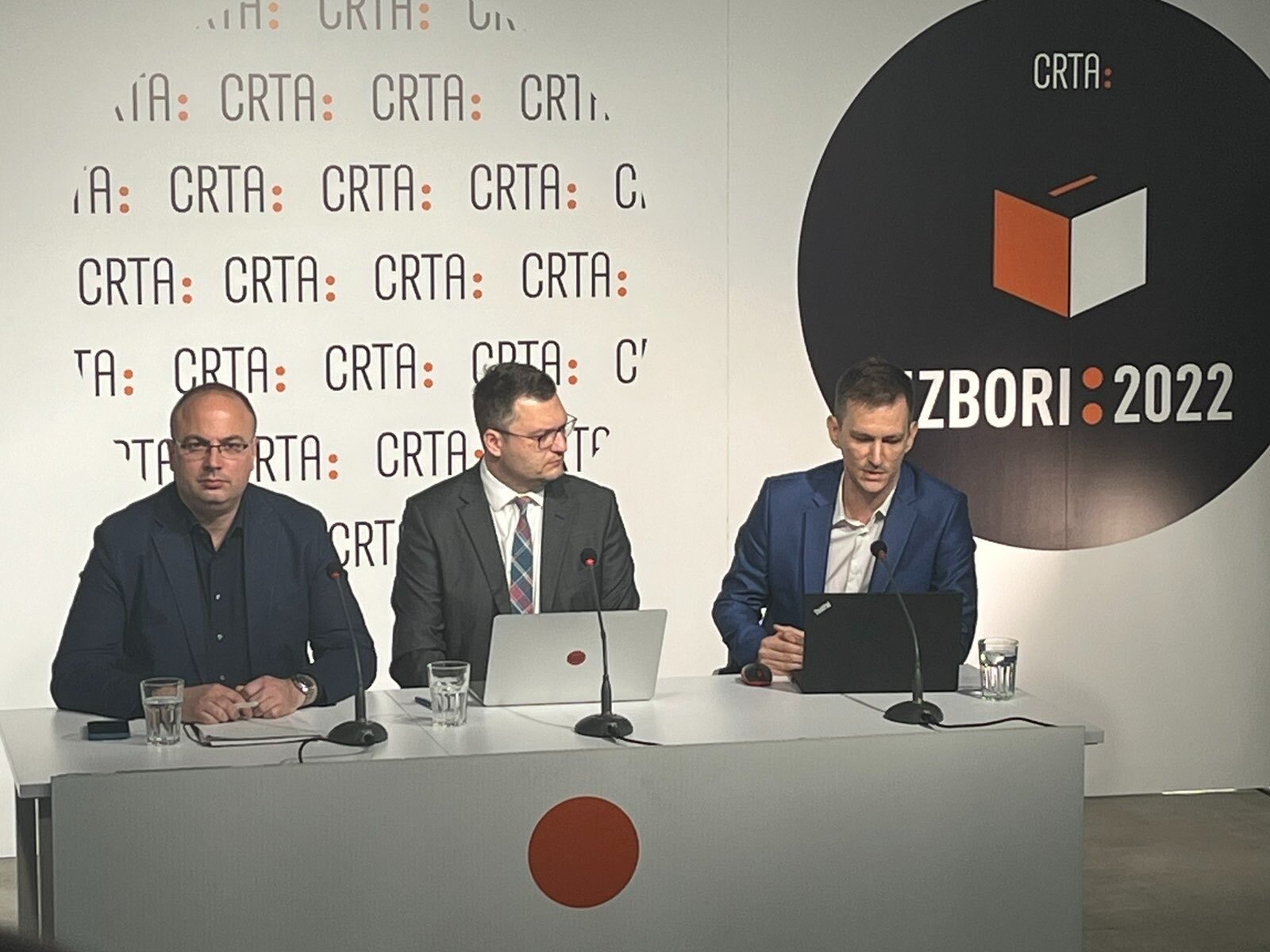Chaotic Election Day As Result of the Poor Electoral Process
 Izbori 2022 , Pavle Dimitrijevic, Rasa Nedeljkov, Vujo Ilic
Izbori 2022 , Pavle Dimitrijevic, Rasa Nedeljkov, Vujo Ilic
Election day went in an atmosphere full of tensions that on several occasions escalated into physical violence, manifesting the unpreparedness of election administration and the lack of citizens’ trust in institutions.
Extremely poor organization of the voting process and tensions on the election day were the expected outcome of the continuous degradation of the integrity of the electoral process in its entirety, which was marked by strengthening and sophistication of mechanisms of electoral corruption, and endangerment of citizens’ voting rights.
However, the major damage to the quality of elections occurred before the election day, reflecting in the negative synergy of parties’ attempts to obtain support through undemocratic methods, the lack of institutional efforts to protect law and public interest, and the unprofessionalism of the majority of the most influential media.
Continuous repetition of serious electoral breaches was recorded at 5 percent of polling stations in Serbia and in Belgrade, which endangered the integrity of the election day at these polling stations, however, the scope of these incidents did not influence election outcomes in Serbia and in Belgrade.
During the election day, the lack of preparedness of polling boards to adequately organize the voting process in accordance with established procedures was identified. This is reflected in the fact that
18 percent of polling stations were not prepared in accordance with established procedures in Serbia and 6 percent of polling stations in Belgrade. The most frequent irregularities included: parallel lists of voters in and around polling stations, breaches of secrecy of voting, pressures on voters and vote buying.
After the closing of polls at 20:00, the presence of voters willing to vote was recorded at 11 percent of polling stations in Serbia, however, in less than half of these polling stations in Serbia they were not allowed to vote. Voters willing to vote were present at 27 percent of polls in Belgrade, while their right to vote was denied at 12 percent of the total number of polling stations in Belgrade. Breaches of secrecy of voting were recorded at 14 percent of polling stations in Serbia and 10 percent in Belgrade. Cases of recording at polling stations by members of polling boards or voters were identified in a significant number in Serbia (11 percent) and in Belgrade (8 percent). The presence of unauthorized persons at polling stations was recorded at 6 six percent of polls in Belgrade and 4 percent of polling stations in Serbia.
The most frequent irregularity on the election day was related to parallel lists of voters at polling stations, which were observed at 11 percent of polling stations, both in Serbia and in Belgrade.
Another frequent irregularity relates to breaches of procedures for voting outside the polling station (voting “at home”), which were recorded at 12 percent of polling stations in Serbia and at 10 percent of polls in Belgrade.
Besides parallel lists of voters, vehicles cruising around polling stations also influenced the electoral atmosphere. This phenomenon was particularly pronounced in Serbia, at 8 percent of polling stations, and at 2 percent of polling stations in Belgrade. Organized driving of voters to polling stations was recorded at 4 percent of polling stations in Serbia and 2 percent of polls in Belgrade. Gatherings around polling stations, with allegations of the presence of cases of vote buying and “carousel voting”, were recorded at 4 percent of polling stations in Serbia and 4 percent of polling stations in Belgrade.
CRTA’s election observation mission submitted seven complaints to the police, including five related to cases of potential vote buying and two related to allegations of “carousel voting”.
CRTA’s observers recorded cases of physical and verbal attacks at and around polling stations across Serbia, and received information about other violent incidents as well.
Cases of verbal attacks or intimidation of CRTA’s observers were recorded at five polling stations from the side of members of polling boards and from the side of third persons in front of three polling stations. Polling boards also pressured CRTA’s observers by either restricting or influencing them to sign in the Record of Observers of the Work of the Polling Board, at 3 percent of polling stations in Belgrade and 1 percent of polling stations in Serbia.
Domestic or foreign observers were present at 18 percent of polling stations in Serbia, and at 85 percent in Belgrade only.
In relation to the voting process concerning voters from Kosovo, very challenging conditions for the exercise of their voting rights occurred, just like in the recent referendum. The manner of organization of voting at 46 specific polling stations did not allow voters from Kosovo to fulfill their voting rights under the same conditions as other citizens of Serbia, and the integrity of the election day was seriously endangered. The voting process was very poorly organized, crowds were reflected in dozens of voters present at polling stations at the same time, thus breaching the secrecy of voting, while other types of irregularities were recorded as well: not using the UV lamp and invisible spray, parallel lists of voters, voting on someone’s behalf, presence of unauthorized persons at polling stations. A large number of voters arrived at polling stations in organized transport, and cases of fainting in waiting lines occurred as well.








